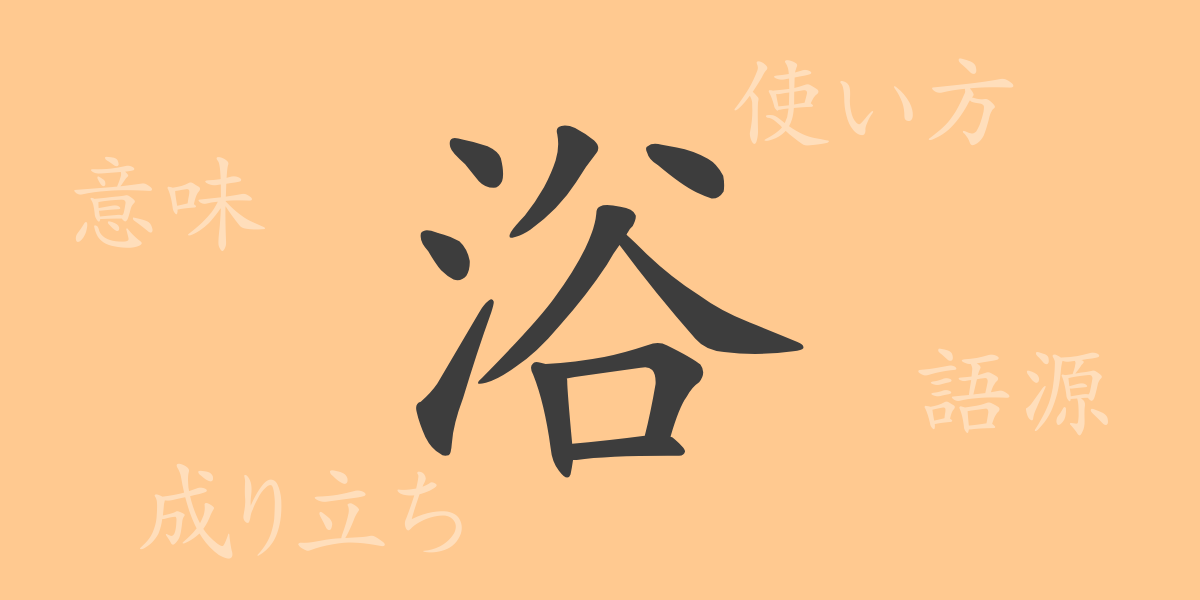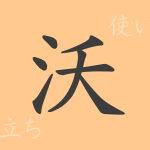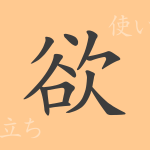Kanji (かんじ) is deeply rooted in our daily lives. One such kanji is “浴” (よく, yoku). This character plays a significant role in Japanese culture and lifestyle. In this article, we will explore the origins, meanings, usage, as well as idioms and proverbs related to “浴” (よく, yoku). By gaining a deeper understanding of “浴” (よく, yoku) as a common kanji, let’s rediscover the richness of our language.
The Origins of “浴” (よく, yoku)
The kanji “浴” (よく, yoku) is related to water and originated in ancient China as a character meaning to immerse oneself in water. It is derived from pictographs and is composed of “氵” (さんずい, sanzui), which represents water, and “勇” (ゆう, yuu), which represents a standing person. From this composition, the meaning “to enter water” can be intuitively understood.
The Meaning and Usage of “浴” (よく, yoku)
“浴” (よく, yoku) often refers to actions related to water, such as taking a bath or “浴びる” (あびる, abiru). However, it is not limited to this. For example, in “日光浴” (にっこうよく, nikkouyoku), it means to bask in sunlight. Thus, “浴” (よく, yoku) allows for rich expressions, both literally and metaphorically.
Reading, Stroke Count, and Radical of “浴” (よく, yoku)
Let’s look at the basic information about the kanji “浴” (よく, yoku).
- Reading: On’yomi (音読み, onyomi) is “ヨク” (よく, yoku), Kun’yomi (訓読み, kunyomi) is “あびる” (あびる, abiru), “あびせる” (あびせる, abiseru)
- Stroke count: 10 strokes
- Radical: 氵 (さんずい, sanzui)
Idioms, Expressions, and Proverbs Using “浴” (よく, yoku)
There are numerous idioms, expressions, and proverbs that include the kanji “浴” (よく, yoku). Representative examples are “入浴” (にゅうよく, nyuuyoku) meaning taking a bath, “日光浴” (にっこうよく, nikkouyoku) meaning sunbathing, and “雨に浴びる” (あめにあびる, ame ni abiru) meaning to be drenched in rain. In proverbs, “禍福は糾える縄の如し” (かふくはあざなえるなわのごとし, kafuku wa azanaeru nawa no gotoshi) includes the expression “禍を浴びる” (わざわいをあびる, wazawai o abiru), meaning to suffer misfortune. These words demonstrate the richness of Japanese expressions.
Summary of “浴” (よく, yoku)
As shown, “浴” (よく, yoku) is a familiar character in the lives of Japanese people, with diverse usages. From everyday conversations to literary expressions, “浴” (よく, yoku) plays a part in the expressive power of the Japanese language. Through this exploration, we hope to provide a deeper understanding of the meanings and background of “浴” (よく, yoku), encouraging the thoughtful use of words.

























